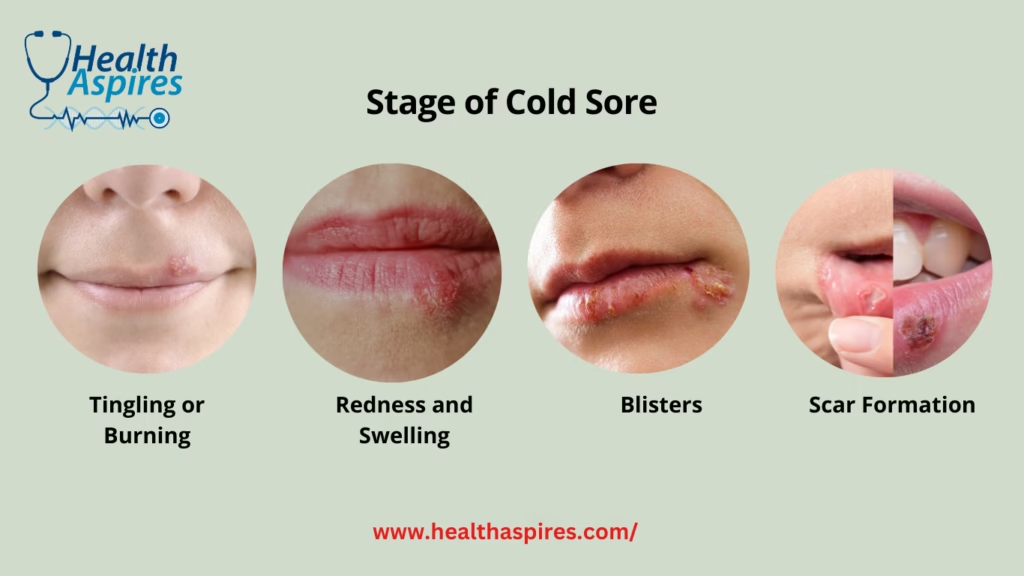Learn everything about cold sores: symptoms, causes, prevention tips, and effective treatments. Stay safe with our expert-backed insights!
What You Need to Know About Cold Sores
Cold sores, commonly referred to as fever blisters, are small, fluid-filled blisters that form on or around the lips. They are caused by the herpes simplex virus (HSV-1) and are a widespread condition that affects millions of people globally. Although they are highly contagious, there are effective strategies for managing and preventing outbreaks. In this detailed guide, we will discuss the causes, symptoms, prevention methods, and treatment options for cold sores to help you maintain your health and remain symptom-free.
What Are Cold Sores?
Cold sores are viral infections primarily caused by the herpes simplex virus type 1 (HSV-1), although they can also be triggered by herpes simplex virus type 2 (HSV-2). These blisters can be uncomfortable and may disrupt daily activities if not treated properly.
- Key Characteristics of Cold Sores:
- Small, fluid-filled blisters around the lips or mouth.
- Usually accompanied by a tingling or burning sensation.
- Tend to heal within 7-10 days without leaving scars.
Common Signs and Symptoms of Cold Sores
Identifying the early signs of a cold sore can significantly aid in managing the condition. Here are the main symptoms to look out for:
- Tingling or Burning: Often, the first indication is a tingling or itching feeling around the lips.
- Redness and Swelling: The area affected may show redness and slight swelling.
- Blisters: Small, painful blisters filled with fluid can develop on or around the lips.
- Crusting: As the blisters burst, they will eventually form a crust while healing.
- Soreness or Pain: The area may feel tender or painful when touched.
- Fever: Some people might experience a mild fever during an outbreak.
- Swollen Lymph Nodes: There may be swelling in the lymph nodes located near the neck or jaw.

What Causes Cold Sores?
The main culprit behind cold sores is the herpes simplex virus (HSV-1). After the virus enters the body, it stays inactive in the nerve cells and can become active again due to various triggers.
Common Triggers:
- Stress:
- Both emotional and physical stress can compromise the immune system.
- Illness:
- Outbreaks often occur with fever or cold infections.
- Sun Exposure:
- UV rays can irritate the skin, leading to blisters.
- Hormonal Changes:
- Changes during menstruation or pregnancy can trigger outbreaks.
- Injuries:
- Any trauma to the lips or nearby areas can also cause issues.
How to Prevent Cold Sores?
Preventing cold sores requires avoiding triggers and adopting healthy habits. Here are some tips to help reduce your risk:
- Maintain Good Hygiene: Regularly wash your hands to stop the virus from spreading.
- Avoid Sharing Personal Items: Don’t share utensils, lip balms, or towels with others.
- Use Lip Sunscreen: Protect your lips from harmful UV rays by applying sunscreen.
- Manage Stress: Engage in relaxation techniques such as meditation or yoga.
- Boost Your Immune System: Consume a balanced diet that is rich in vitamins and minerals.
- Avoid Close Contact: Steer clear of kissing or close physical contact during an outbreak.
- Recognize Early Signs: Apply antiviral creams or medications at the first sign of tingling.
Treatment Options for Cold Sores
While cold sores typically heal on their own, there are several treatment options that can help speed up recovery and alleviate symptoms:
1. Over-the-Counter Treatments:
- Antiviral creams such as acyclovir or penciclovir.
- Pain relievers like ibuprofen or acetaminophen to ease discomfort.
2. Prescription Medications:
- Oral antiviral medications, including valacyclovir and famciclovir, may be recommended for more severe cases.
3. Home Remedies:
- Apply a cold compress to help reduce swelling.
- Use aloe Vera gel to calm irritation.
- Dab a bit of petroleum jelly to keep the area moisturized.
4. Lifestyle Adjustments:
- Stay hydrated and get plenty of rest to support your immune system.
- Avoid acidic or spicy foods that could irritate the blisters.
The best way to manage cold sores is to act quickly. As soon as you feel that first tingle, use an antiviral cream or take any medication your doctor has prescribed. It’s also crucial to prevent outbreaks by shielding your lips from the sun and keeping your immune system strong – Dr. Sarah Johnson (Dermatologist)
FAQs About Cold Sores
- Q. Are cold sores contagious?
- A. Yes, cold sores are very contagious, particularly when the blisters are open and oozing.
- Q. Can cold sores be cured permanently?
- A. While there is no permanent cure for HSV-1, there are treatments that can effectively manage outbreaks.
- Q. How long do cold sores last?
- A. Generally, cold sores take about 7-10 days to heal.
